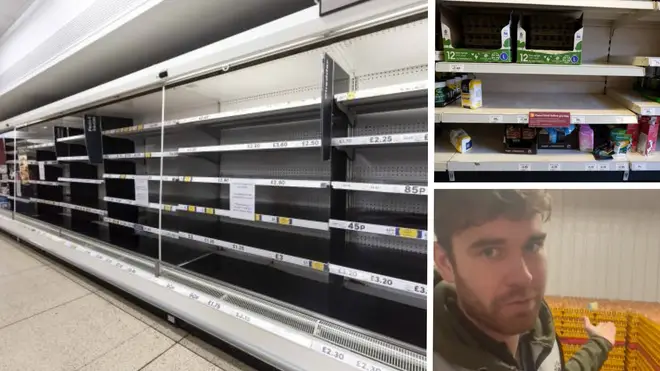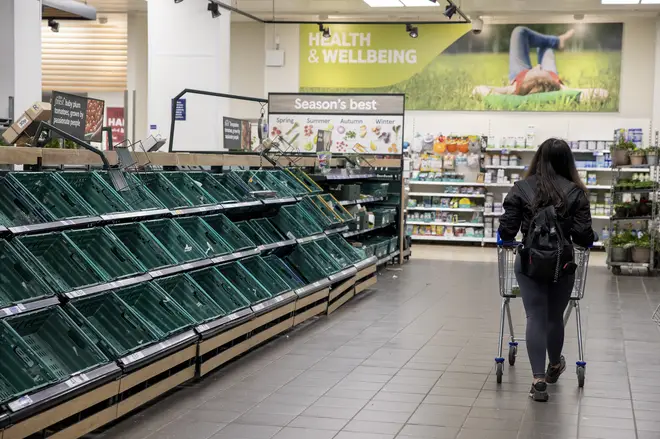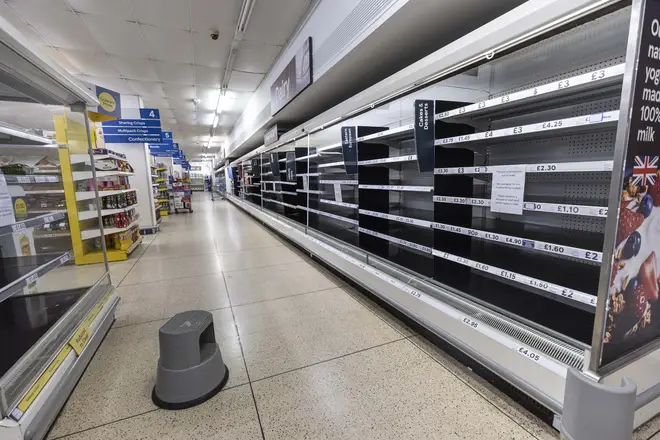
Richard Spurr 1am - 4am
15 November 2022, 10:08

Shops are warning customers about egg shortages, blaming bird flu - but a farmer has blamed the supermarkets themselves for not paying their suppliers enough.
Some stores and the Wethespoons pub chain have told customers of limits on the number of eggs they can buy.
Shoppers can buy a maximum of three egg boxes in Lidl, with reports of shelves in some Sainsbury's stores and other chains also looking bare.
A spokesperson for Wetherspoons said: "We can confirm that there are temporary issues with egg supplies at some Wetherspoon pubs, due to the current impact of Avian flu on egg production."

'Children living in uninhabitable conditions in Britain in 2022 should be shaming for councils!'
“We are experiencing issues in receiving all the supplies we require to satisfy demand in every pub.
“This is not specific to Wetherspoon and other hospitality operators and supermarkets are facing similar issues."
Many birds that would have produced eggs are also thought to have died in the extreme summer heatwave, exacerbating shortages.
But one farmer claimed that egg shortages were also driven by supermarkets not paying enough to producers like him.

James O'Brien caller: Insulate Britain should shut down supermarkets
The man said: "To be fair, there has been a lot of cases of avian flu. But do you want to know the real reason for the shortages?
"It's because the supermarkets won't pay the farmers for the eggs. The supermarkets have upped the price for you, the consumer. But they haven't filtered that price increase down to us, the farmers.
"But our cost of producing the eggs has skyrocketed. Electric, the price of new birds - that's gone up. But our price of eggs has stayed the same.
"So we. physically, can't afford to produce these eggs."

The unnamed man claimed that farmers have ordered eight million fewer free range hens this year than last year - equating to nearly eight million fewer eggs produced every day.

Addressing the avian flu issue, Christine Middlemiss, chief veterinary officer, said: "Many poultry keepers in England have excellent biosecurity standards but we know that one small mistake is all it takes to introduce bird flu on to premises and kill flocks.
"A housing order alone will not be enough to reduce infection rates. Implementing scrupulous biosecurity and separating flocks from wild birds remains the best form of defence.
"Whether you keep just a few birds or thousands, from today onwards they must be housed under cover to protect them from this highly infectious disease."